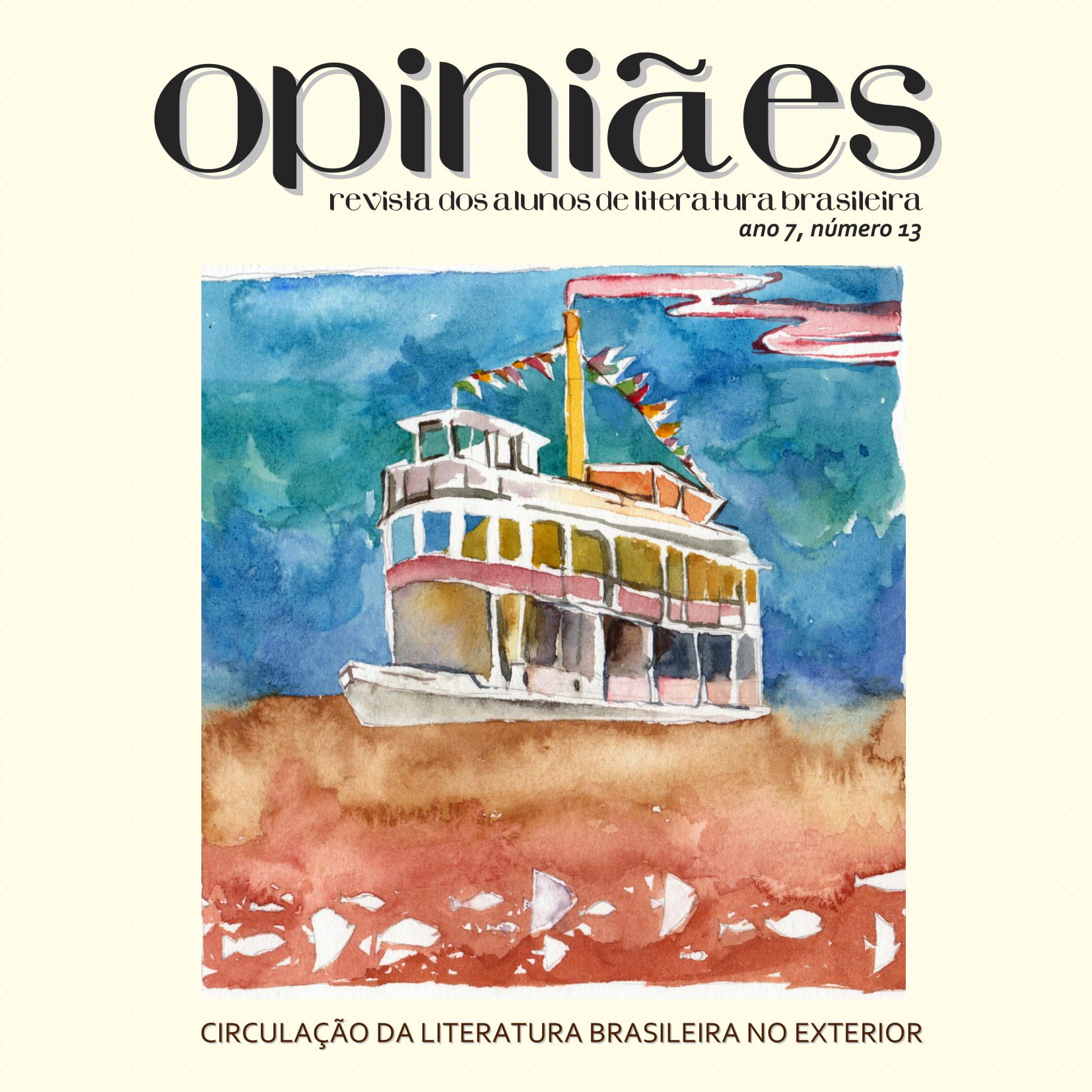Behind the Hill of Myself – There: the place with no name
DOI:
https://doi.org/10.11606/issn.2525-8133.opiniaes.2018.148867Keywords:
João Guimarães Rosa, unreasoning, infancy, reversibility, power of wordsAbstract
The following article examines the short story "A menina de lá", from the book Primeiras Estórias, by João Guimarães Rosa. The analysis pursues the experience of openness and the impossibility of defining and naming that the particle “lá” ("there") bestows upon the narrative. The concept of "unreason", as outlined by Peter Pál Pelbart from the ideas of Foucault and Blanchot, constitutes the analytical framework. The image of the child, main character, built upon traits of absence, silence and immobility, tensions the ambiguities of lack and fullness, madness and sanctity, normality and abnormality, silence and the Creative Word. This process unfolds the image of “infans,” in its anteriority regarding to the speaking/symbolic processes, to the acculturation and to the utilitarian thinking, and also in a "place of existence" of psychical or metaphysical dimensions. In the weaving of the narrative as well as in the construction of the character, one finds a tissue of meanings and images that compels the reader to inhabit the void, the openness, the anteriority... the "there".
Downloads
References
BLANCHOT, Maurice. O espaço literário (trad. Álvaro Cabral). Rio de Janeiro: Rocco, 2011.
CAMACHO, Fernando. "Entrevista com João Guimarães Rosa". Revista Humboldt, vol. 18, nº 37, Munique; Rio de Janeiro, 1978. Disponível em: http://www.elfikurten.com.br/2016/05/joao-guimaraes-rosa-entrevistado-por.html. Acesso em: 7 de agosto de 2017.
CANDIDO, Antonio. A educação pela noite e outros ensaios. Ed Ática, São Paulo, 2000.
COUTINHO, Eduardo F. (org.). Guimarães Rosa. (Coleção Fortuna Crítica v.6). Rio de Janeiro: Civilização Brasileira, 1983.
FOUCAULT, Michel. História da Loucura na Idade Clássica. São Paulo: editora Perspectiva, 1978.
FOUCAULT, Michel. O pensamento do exterior. São Paulo: Editora Princípio.
HESÍODO. Teogonia: a origem dos deuses. Estudo e tradução de Jaa Torrano (6ª ed.). São Paulo: Iluminuras, 2006.
LEEMING, David; PAGE, Jack. Goddess: Myths of the Female Divine. New York: Oxford University Press, 1994.
LIEVEGOED, Bernardus Cornelius Johannes. Desvendando o crescimento: As fases evolutivas da infância e da adolescência. Tradução de Rudolf Lanz. São Paulo: Antroposófica, 1994.
PAZ, Octavio. Signos em rotação. São Paulo: Perspectiva, 1996.
PELBART, Peter Pál. A nau do tempo-rei: sete ensaios sobre o tempo da loucura. Rio de Janeiro: Imago Editora, 1993.
PIAGET, Jean O nascimento da inteligência na criança. Rio de Janeiro: Zahar Editores, 1970.
ROSA, João Guimarães. Grande Sertão: Veredas. (19ª ed.). Rio de Janeiro: Nova Fronteira, 2001.
ROSA, João Guimarães. Primeiras Estórias. (15ª ed.). Rio de Janeiro: Nova Fronteira, 2001.
ROSA, João Guimarães. João Guimarães Rosa: correspondência com seu tradutor italiano Edoardo Bizzarri. (3ª ed.). Rio de Janeiro: Nova Fronteira, 2003.
ROSA, João Guimarães. Sagarana. (21ª ed.). Rio de Janeiro: José Olympio, 1978.
ROSA, João Guimarães. Tutaméia: Terceiras Estórias. (3ª ed.). Rio de Janeiro: José Olympio, 1969.
SPERBER, Suzi Frankl. Guimarães Rosa: signo e sentimento. São Paulo: Ática, 1982.
Downloads
Published
Issue
Section
License
Copyright (c) 2018 Fernanda Yazbek Rivitti

This work is licensed under a Creative Commons Attribution 4.0 International License.
A revista Opiniães não exerce cobrança pelas contribuições recebidas, garantindo o compartilhamento universal de suas publicações. Os autores mantêm os direitos autorais sobre os textos originais e inéditos que disponibilizarem e concedem à revista o direito de primeira publicação, com o trabalho simultaneamente licenciado sob a Licença Creative Commons Attribution que permite o compartilhamento do trabalho com reconhecimento da autoria e publicação inicial nesta revista.



